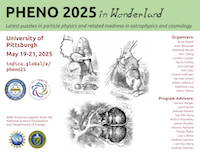Speaker
Description
The HL-LHC poses significant challenges for tracking with machine learning models, demanding both robust stability while requiring minimal computational overhead. While most previous studies have relied on graph-based methods that are often highly effective, they frequently encounter difficulties with computational complexity on large scale point cloud. In this study, we adopted several linear complexity model, and new class state space model, Mamba to further improve the throughput while having the same performance. We first evaluate per-point classification DBSCAN to assign track IDs, measuring both physics performance and embedding quality. Building on this, a new design with semantic or instance segmentation to support a wide range of downstream applications.

